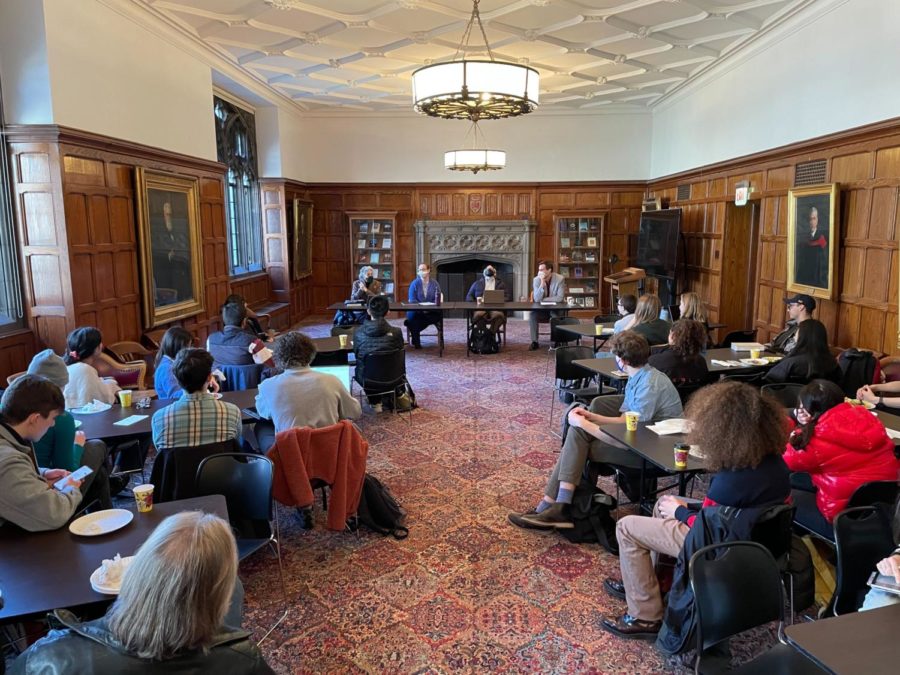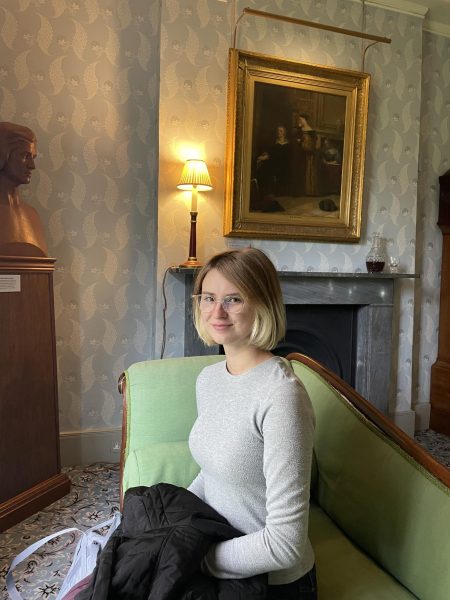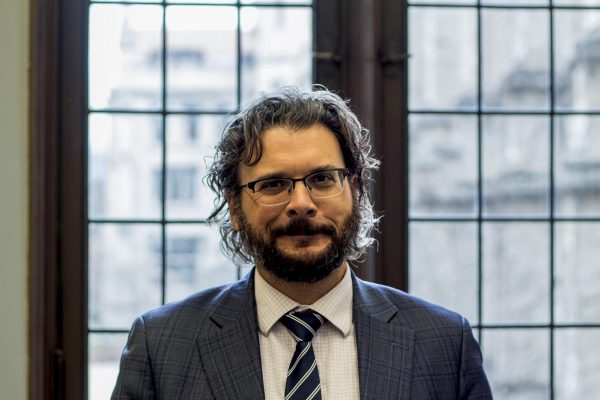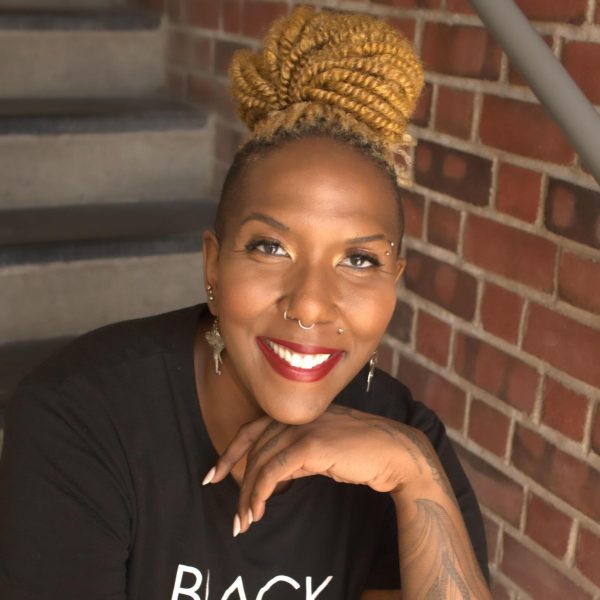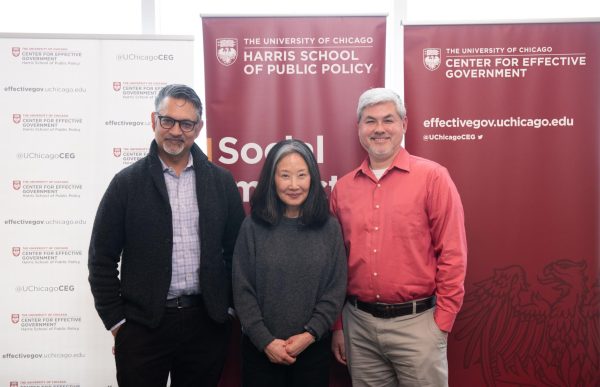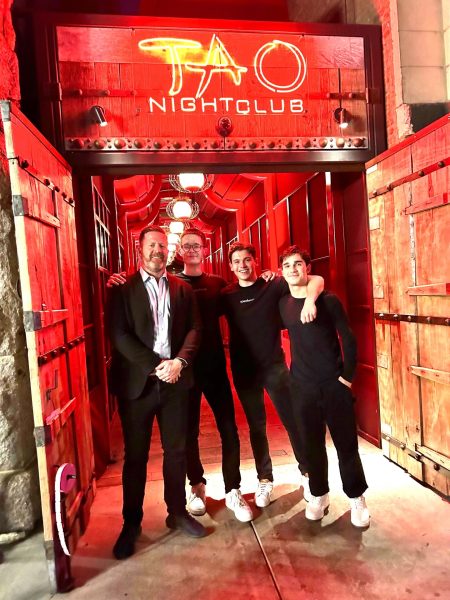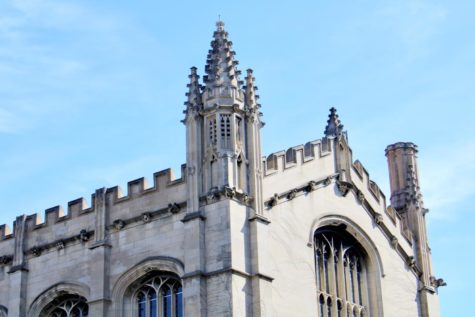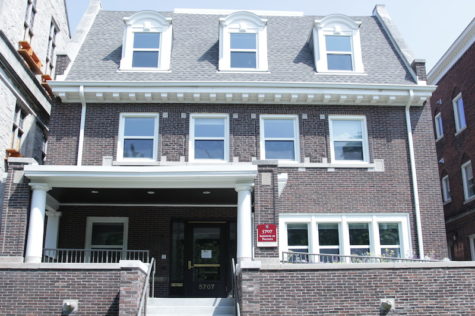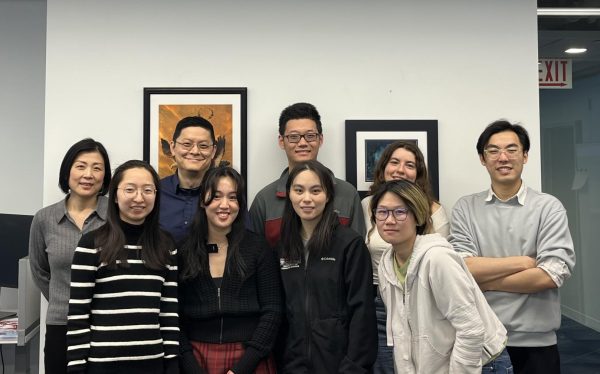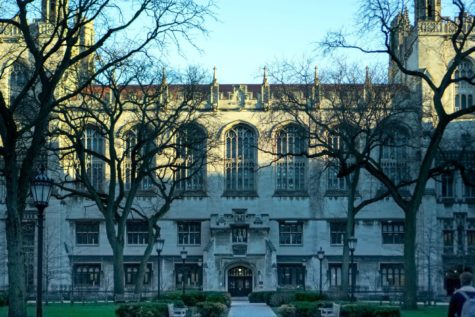New Student Group CULT Hopes to Foster Campus Dialogue About Religion
If you were looking for a “cult,” you’re in the wrong place; CULT, the newest student group focused on religious studies, aims to create an environment for discussion and learning instead.
CULT’s first event.
March 25, 2023
Does studying religion matter? On February 10, students, faculty, and alumni gathered in the Swift Hall common room to discuss this topic at the first event hosted by a new student group on campus called CULT.
CULT, which stands for Critical Understanding of Liturgies and Traditions, was founded this quarter by second-year Francesco Rahe and third-year Spencer Scott. According to Rahe, the organization aims to create a space on campus for students to discuss religion and religious studies through the lenses of politics, culture, economics, history, and more.
The panel, which was CULT’s debut event, was introduced by scholar of Christianity Erin Walsh and moderated by Russell Johnson, who is known for teaching the “Star Wars and Religion” course. Speakers on the panel included Sarah Fredericks, an associate professor of environmental ethics; Laurie Zoloth, a religious studies professor with a particular interest in bioethics; and Charles Preston, who specializes in the history of religions.
During the panel, each professor discussed at length what drew them personally to religious studies. “I think it’s such a fascinating part of the human experience, and I think there’s very few things that people really care about—that they’re willing to die for—and here’s one that has mattered trans-historically, trans-geographically, from the earliest moment that we know of as human,” said Zoloth.
Fredericks reflected on the personal value students can find in studying religion. “The academic study of religion can give you terms for things that you were thinking about but didn’t know that other people were thinking about too and give you access to communities that you may not have known about.”
Preston, the historian of the group, focused on the implications of religion in the political sphere. “In my mind, so many of the ways the world is falling apart…are because of constructions of religious identity that are continuing to add strife to religious conflict, so in order to understand that, we need to understand the history behind why these religious constructions have hardened, why religion and politics intersect to create strife.”
The wide range of specializations the speakers brought to the table was also a point of conversation. “I think that’s the beauty of religious studies…that two ethicists and a historian”—(“Walk into a bar,” Fredericks interjected)—“can be in the same building and have the same conversation about a set object,” reflected Preston.
Scott and Rahe created CULT after a trip to Israel in 2022, where they both had the opportunity to discuss religious theory with people from a wide variety of religious backgrounds. “It really helped inspire me in a lot of ways, and I wanted to bring those conversations to UChicago and create a student-led place to talk about religion through all different kinds of angles,” Rahe said.
“This is a great forum for us to utilize the professors that we have here on campus, rather than bringing in people from elsewhere, because we have such a trove of experience and completely different backgrounds just in our faculty,” said CULT Outreach Director Lila Rice.
When asked about the organization’s eye-catching name, Scott credited panel moderator Johnson for the turn of phrase. “We originally were going to call it something very basic, like the religious studies club,” Scott said. “It was Professor Johnson who said, ‘Oh, wouldn’t it be fun if you called it the Center for the Understanding of Liturgies and Traditions?’ And we were like, oh yes, we have to do that, no doubt.”
As to the future of the organization, the CULT board mentioned several ideas in the works, most notably a blood drive anticipated for spring quarter. “We’re currently planning a massive blood sacrifice, aka blood donation, because there is a nationwide blood shortage,” Social Chair Nick Korn said. “We want to be a way that undergraduates can bridge the gap between helping their community and also talking about religious studies.”
CULT’s next event was a study break during ninth week of winter quarter, where they screened The Prince of Egypt.
Correction, March 28, 2023: The headline and body of this article previously stated that CULT was a recognized student organization (RSO) on campus. It does not hold RSO status.



